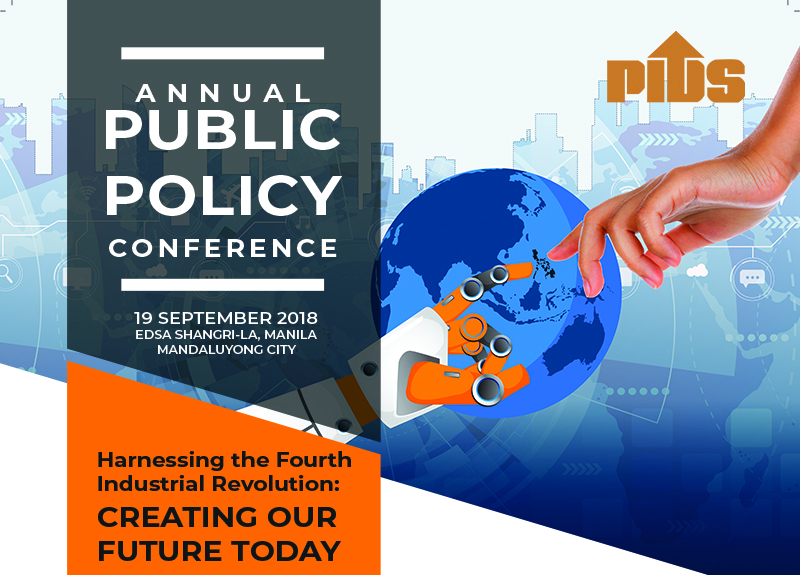Every September, the Philippine Institute for Development Studies (PIDS) holds the Annual Public Policy Conference (APPC) as the main and culminating activity of the Development Policy Research Month (DPRM), a nationwide celebration to promote the importance of policy research in the formulation of policies, programs, and projects in government.
The APPC aims to gather experts and researchers in the social sciences to discuss and recommend policies on current and emerging issues that need the attention of policymakers.
The first APPC was conducted in 2015 with the theme “Harnessing Our Institutions and Human Capital for Inclusive Growth” to underscore the crucial role of education in the country’s development. Discussions revolved around challenges in improving the accessibility and quality of education in the Philippines. To address these issues, the conference speakers urged the government to implement policies that would lead to better execution of programs, expansion of financial aid to poor students, and tapping of private foundations and philanthropic organizations for scholarships and trainings to improve skills of Filipino students.
In 2016, the focus of the APPC was on “Risks, Shocks, Building Resilience” in the macroeconomic, agriculture, urban development, and health sectors. To boost resilience in the country, government was called to monitor and evaluate the effectiveness of policies and programs for reducing the impacts of climate change and climate-related risks on agriculture, and prioritize the welfare of health workers during disasters by providing pre-orientation and debriefing activities. Technical coordination among health units to enhance the quality and efficiency of the health sector and the adoption of an integrated policy approach to address risks in urban areas were also proposed. Policymakers were also urged to look at the interaction of the geophysical, political, economic, and social aspects to address policy gaps.
Last year, the conference centered on “Strengthening Decentralization for Regional Development”, or in Filipino “Pagpapatibay ng Desentralisasyon Tungo sa Kaunlarang Panrehiyon”. It focused on the need for in-depth reflections and evidence-based analyses not just on federalism but encompassing the bigger umbrella of decentralization reforms. The conference covered topics ranging from allocation of functional responsibilities, taxing powers and management of financial resources, delineation of territorial boundary of states, treatment of local government units, to political stability of the proposed shift to federalism and its relationship and effects to political parties and political dynasties in the country. Sessions also delved on concepts of centralization versus decentralization in both the administrative and political spheres including comparisons and key lessons from federal countries.
The APPC this year, which is set on September 19 at the Edsa Shangri-La, will center on the theme “Harnessing the Fourth Industrial Revolution: Creating Our Future Today” [Filipino translation: “Isulong ang Fourth Industrial Revolution Tungo sa Katuparan ng Ating Kinabukasan Ngayon”). The objective of the conference is to promote awareness and understanding of the Fourth Industrial Revolution (FIRe), also known as Industry 4.0, and encourage everyone to be proactive in preparing for and adapting to the changes that come along with it. It also intends to pique the interest of policymakers about the FIRe, and influence them to prioritize this in the national agenda.
To know more about its theme and activities, you may visit the APPC website at https://appc.pids.gov.ph ###

